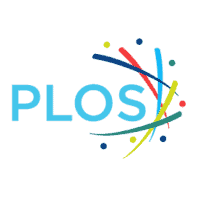If you’ve ever considered publishing Open Access (OA) in PLOS Biology or PLOS Medicine, it just got a lot more affordable. The Big Ten Academic Alliance (BTAA), of which University of Iowa is a member, just signed a three-year deal with the OA mega-journal publisher, PLOS, allowing corresponding authors at any Big 10 university to publish in these two journals without any cost to the author. This agreement is part of PLOS’ Community Action Publishing (CAP) program, which its website describes as, “a type of ‘collective action’ business model that can equitably distribute the cost of selective, Open Access publishing among institutions rather than charging high APCs to individual authors.” The program comes as part of an existing resource sharing consortium among the institutions of the Big 10 and is the first of its kind, both for PLOS and the BTAA.
While not all of PLOS’ journal titles are covered by this agreement—most notably the publisher’s flagship journal, PLOS One is not covered—PLOS Biology and PLOS Medicine are already major publication venues for authors at Big 10 universities, representing 5% of the total articles published in both journals from 2016 to 2019. This deal makes the highly selective titles even more attractive to BTAA authors.
Article Processing Charges (APCs) are a burden that OA authors have to bear themselves if they have no grant or department funding to cover them. These costs have risen precipitously in recent years and are a significant barrier to making research open and freely accessible. Without the CAP program, authors submitting to PLOS Biology or PLOS Medicine could expect to pay up to $3,000 to make a single article open. This agreement represents an alternative to both the traditional subscription model of academic publishing and the author-funded APC model. Under the CAP program, the BTAA pays for the publishing costs (+ 10% margin) and any revenues above the target are redistributed back to community members.
If you’re interested in taking advantage of no-cost OA publishing in PLOS Biology or PLOS Medicine, the process should be seamless. You just follow PLOS’ existing workflows and your institutional affiliation will trigger PLOS to publish the article without the APC. As UI Libraries move toward supporting more sustainable and equitable models of OA, we see this community-based agreement as a step in the right direction.
For more information, please contact Sara Scheib, Head of Scholarly Impact, or Mahrya Burnett, Scholarly Communications Librarian.
